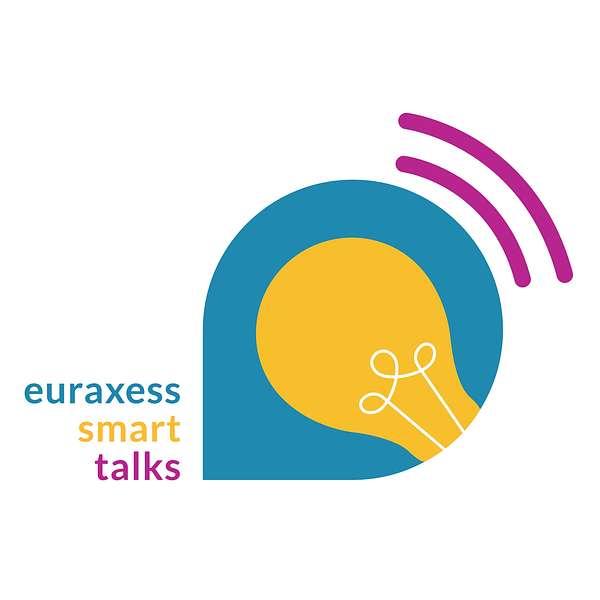
EURAXESS Smart Talks
The EURAXESS Smart Talks podcast for talents is your personal guide to Research Careers, Innovation, and Entrepreneurship
EURAXESS Smart Talks
Let’s get science out of the lab! A conversation with Professor Marina Joubert
In this inspiring episode of EURAXESS Smart Talks, we sit down with Dr. Marina Joubert, a trailblazer in science communication from Stellenbosch University. With a rich background in food science, journalism, and agricultural sciences, Dr. Joubert shares her journey from the lab to the public sphere, advocating for evidence-based discourse and the democratization of science. We explore how scientists can better engage with society, build trust, and navigate the evolving landscape of science communication in the digital age.
Whether you're a researcher, student, or science enthusiast, this episode offers practical insights and thoughtful reflections on making science more visible, accessible, and impactful.
🔑 Key Topics Covered:
- Dr. Joubert’s personal journey from science to journalism and back
- The importance of science communication in Africa
- Deficit, dialogue, and engagement models of science communication
- Public trust and distrust in science
- The role of emotion and empathy in effective communication
- Challenges in communicating complex issues like antimicrobial resistance
- Incentives and support structures for scientists to engage with the public
- Practical tips for balancing research and outreach
⏱️ Timestamped Highlights & Questions:
- 01:12 – Introduction to Dr. Marina Joubert and her career
- 02:28 – Why she chose science communication over pure research
- 04:00 – Building science communication education in South Africa
- 06:36 – Bridging theory and practice in science communication
- 08:00 – Why facts alone aren’t enough: the role of emotion and identity
- 13:13 – Models of science communication: deficit, dialogue, engagement
- 16:21 – Trust in science: what global research reveals
- 18:48 – The rise of vocal anti-science groups and how scientists should respond
- 20:02 – Tips for building trust: personalization and empathy
- 26:01 – Communicating about antimicrobial resistance (AMR)
- 28:26 – How to attract scientists to public engagement
- 31:45 – Balancing science communication with everyday research
- 34:00 – Tangible and intangible benefits of outreach
- 36:35 – Final advice: start small, build visibility, and engage meaningfully
Newsletter to subscribe to (lots of resources and jobs in scicomm)
• The Scicommer: https://thescicommer.substack.com
Resources
• Quality and Effectiveness in Science Communication (QUEST) - https://questproject.eu/
• Observatory for open and outstanding science communication (ENJOI) https://enjoiscicomm.eu
• Science communication and sensemaking (RETHINK) https://www.rethinkscicomm.eu/
• A resource page from the HSRC: https://hsrc.ac.za/home-page/science-in-society/useful-links-on-science-communication/
• A legacy page from a recent (2024) conference on communicating discovery sciences (Stellenbosch) - https://www.discoveryscience.co.za/
Companies who offer science communication services and training (there are many more!)
• Jive Media Africa https://jivemedia.co.za/